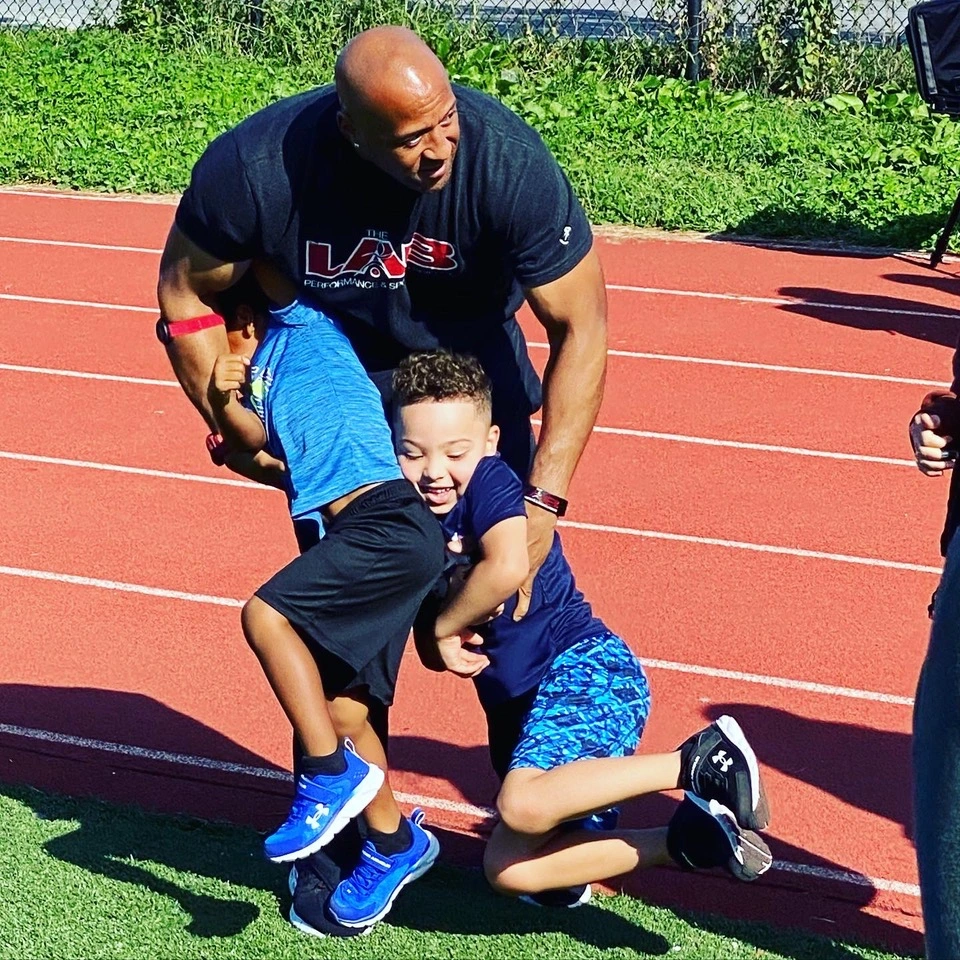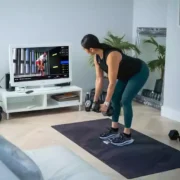Trainer Talks: Michael Piercy on Developing Your Inner Athlete

Michael Piercy and The LAB Performance & Sports Science build confidence and skills in clients far beyond physical training
Michael Piercy, MS, CSCS*D, believes everyone is an athlete. Drawing inspiration from Nike co-founder Bill Bowerman, who said “If you have a body, you’re an athlete,” Piercy believes we all possess innate athletic qualities.
It’s a perspective that underscores his belief in the universal potential for fitness and personal improvement, a principle he eagerly shares in his training sessions.
Piercy, founder of The LAB Performance & Sports Science, Fairfield, New Jersey, played baseball with three major league organizations in a previous professional life and has an unwavering passion for coaching and personal training.
His commitment is not just to the physical training of athletes, but to their overall development as individuals.
“How can we help them not only become great athletes but also great people? That excites me,” he says, highlighting a holistic approach that seems increasingly rare in today’s specialized and often commercialized athletic world.
Athletech News spoke to Piercy about his performance training approach and his vision for shaping future athletes through measured coaching.
This conversation has been lightly edited for clarity and length.
Athletech News: Do you have a formula for integrating your extensive range of certifications and training modalities into a cohesive approach for your clients?
Michael Piercy: Having spent my life playing baseball, I’ve learned the importance of adapting. Each team has a hitting coach with a particular style. The worst thing you can do is try to integrate all of that philosophy into your style. Each person might offer one thing that helps, and you integrate that.
Certifications are a great place to find information and you never know when something you read or watch will resonate with where you are in life. With certifications, I consider how to integrate different elements for the athletes we work with. We look at the injuries and issues prevalent in sports and consider how our philosophy can help prevent or address them. It’s about constantly learning and having a knowledge base to draw from.
In my early career, I tried to use everything I learned and bombarded clients with it, which they hated. It was discombobulated and disjointed. Now, I tell my coaches it takes many reps to find out who you are as a coach. You’ll realize what you believe in and what works for you. We have a process for coaching athletes that we believe works, but it’s ever-changing.

ATN: How has your experience in professional baseball influenced your training philosophy and methods at The LAB?
MP: My experience has significantly influenced my approach. Drawing from a base of personal experience as an athlete is invaluable. My athletic background doesn’t necessarily make me a better coach than someone else. It does, however, give me insights and understandings that others might not have. As an athlete, I understand when an athlete is not giving their all, or when they’re genuinely exhausted. I know what it’s like to go through a hitting slump or a crisis of confidence. This allows me to help athletes navigate these mental and emotional challenges more effectively.
Youth athletics has become a highly commercialized industry. When I was growing up, sports were simpler and more recreational. Now, there are layers of coaching and training, and sometimes young athletes participate not out of passion but to avoid disappointing their parents or because they’re naturally good at it, not because they enjoy it. It’s important to encourage athletes to do it for themselves and to understand where they are mentally.
ATN: What qualities do you foster in the personal trainers/coaches you mentor?
MP: I enjoy hiring young coaches with a passion for the craft. Being a former athlete is a plus, but it’s not mandatory. The key qualities are devotion to improvement and a willingness to ask important questions, like where they see themselves in 5 years.
In our industry, many people leave within 2 years because they can’t make a living. It’s crucial to be patient, kind, and professional. Being liked by people can compensate for some mistakes. Professionalism and respect are vital.
Mentoring young coaches involves teaching them to focus on details, like being punctual, dressing appropriately, and communicating effectively. It’s about planning and preparing rather than improvising at the last minute. They need to be willing to develop themselves, which is challenging in an unregulated industry.

ATN: How do you stay ahead of evolving fitness trends and incorporate new findings into your training programs?
MP: I try to stay in my lane, where my attention is focused. For example, I don’t do hitting and fielding with baseball players anymore unless it’s a specific situation. There are academies and experts who specialize in that and understand the latest trends. I focus on what I do every day, which is working with athletes.
Living in “your space” helps you embrace market changes. Like the saying goes, if you read about an investment in the paper, you’re already too late. This applies to our industry as well. Some people jump on trends like online fitness when they’re already oversaturated. Instead, staying ahead of market changes and understanding where things are going is crucial.
ATN: How will the future of fitness training evolve, and what role can The LAB play?
MP: The future of fitness training is about embracing technologies and evolving our roles, but it also requires the prerequisite education. It’s easy to show someone the latest exercise trends, but at the end of the day, it’s about packaging what we have to provide value. There’s a change in the industry, and we need to adapt.
At The LAB, we focus on training the total athlete, not just physically but mentally, and in terms of recovery as well. We’re constantly looking for what we can add to our formula to help athletes improve in all aspects, not just the elite ones.
Growing up, I didn’t have a mentor for certain skills, so I had to teach myself how to hit a baseball by reading books. My goal, and our goal, is to give kids every tool they need to be successful, not just as athletes but in life. I believe uncoachable kids become unemployable adults. We want to develop young athletes not just in their skills but also in their confidence and ability to communicate.
As for the future, we’re excited about incorporating the latest technologies and methodologies. We’re moving beyond traditional assessments to more comprehensive approaches that genuinely excite and engage athletes. We’re proud to be a place that prioritizes development, a rare feature in today’s sports landscape.



